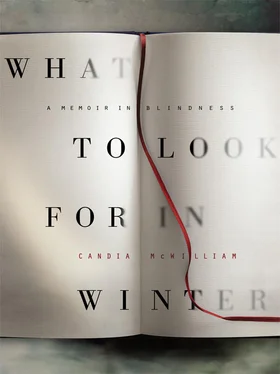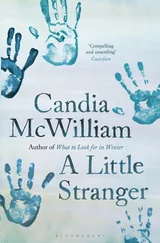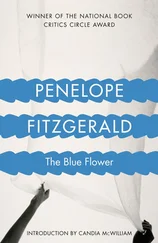I read all I could about Marilyn’s death. I remember reading Life magazine, lying on my stomach, of course, on the floor of another family, and getting the first intimation of why she really did it that made complete sense to me. Life had silky pages that smelt of my lino-cutting set.
The words that made sense were, ‘Breasts, belly, bottom, soon all must sag.’ The alliteration, the coarse mimetic bounce of the words and the downward fall of the sentence added to its crude potency; the misogyny agreed with some knot within me of self-dislike, and I saw that that was one reason to die (or transform yourself, as I saw suicide at that time, before it had come closer), that Marilyn had shifted shape by choosing to stay the same, by dying. I collected information about female suicides long before there was one at home, whose case I have refused to study until recently. I was interested as a quite small child by women who kill themselves and that they will often choose to wear make-up to do so. This may have changed by now. Many suicides are drunk or otherwise chemically changed, and grooming, as I have cause to know, is not a part of the throes of advanced addiction. Women used to get into their prettiest underwear, their nicest negligee, in order to be negligent of themselves in the highest degree. I don’t know what happens now that there is so great a passion for pictures of women falling short of the impossible standards they have set themselves in life. And if we think at all, we know, even without seeing photographs of really dead beauties, that the prettification will in time be all undone: the mouth falls open, the stomach rebels, the bowels let go, the worm or the fire do their work.
I was keen on the self-betterment side of suicide, so convinced of angelic afterlife was I, on account of knowing for sure that I had a guardian angel, partly because on my nursery wall was a reproduction of Ghirlandaio’s painting of Tobias, slung with the fish, gall from whose liver was to cure his father’s blindness, and his Angel, and partly on account of my guardian angel having told me firmly not to turn on my bedroom light switch which went on to give my mother a great shock later that day. My mother was undoubtedly attractive to shocks.
Also, someone had written on my nursery window with a diamond, which showed that a child or young woman (the writing made that clear) had lived in that small tall shuttered room before. The words were ‘October 1893’. What was important was that all the letters had serifs, so once someone with a lot of time had looked out over the garden and over the wall to the river and up and over the narrow walkway to the railway bank, maybe, and certainly within knowledge of the cemetery over that bank, where The Red Lady, it was known, walked by night and had done since thirty years before my guardian angel had written her tidy date on my windowpane.
The idea that suicide is a way of refining oneself is not new, to humans, to children, to girl-children, to girl-children of religious bent, nor to anyone who seeks a solution. Often the solution sought is temporary, and this temporariness cannot be ensured. Anorexia is its slower mode, taking appalling hostages. The joke of it in my life was that the long suicide I took on was the perfect undoing offered by alcohol, and I really didn’t know that I was doing it until very nearly too late, by when I had indeed transformed myself by taking the clear liquid solution.
Marilyn died and as a child I loved the most the pictures of her with her intelligent husband, always so evidently and photogenically intelligent, Arthur Miller. His dark looks established, together with almost all medical doctors whom we knew and the cold Edinburgh weather, which necessitated that men wear long tailored overcoats, what could be called my ‘type’, as in Proust’s ‘she was never my type’. Later this received a top dressing of Sydney Carton from A Tale of Two Cities and of the hopeless clever drunk Charles Stringham from A Dance to the Music of Time , Prince Andrei too. About the only thing I can say in my defence in this area of daydream is that I have never fancied Vronsky.
Hopeless, clever, drunk; that trio of adjectives reminds me of something that happened on the same day as I read that sexy and offensive sentence about Marilyn, and it reveals what conversation was like in the long afternoon winter drawing rooms of Edinburgh among my parents and their friends. We were some doors down from the house where Compton Mackenzie would hold court in his great downstairs bed. ‘We’ were, I suppose, another family, of two parents and four children, a grandfather and a very thin aunt who I realise now was dying, and my parents. The oldest daughter of the house, about sixteen, was reading The Flight from the Enchanter or some other novel by Iris Murdoch that I had seen my mother read.
‘Why do the adjectives in Iris Murdoch’s books come so often in threes?’ she asked.
So the game was to use only triplet adjectives for the afternoon and all of us played it. The taste of that house was black treacle with yellow cream, in bowls of uncooked oats. Over the dining table there was an oil painting of the mother, Marjory, in a hat covered with flowers. The father was a landscape architect. All the children save the boy, Simon, had dark eyes. Simon told me not to let people know how much I knew if I wanted more friends. We were six and took turns on the rowing machine that was there for the frail ones in the family. Simon and Polly were twins and I was a severe bore for them because I tried to copy them in order to be normal; copying twins who are not identical is a tangle.
But who to be?
When my mother died I had someone to be, perhaps. But it was in the days before people spoke about such events after they had happened, and we were in Scotland, where speaking was less the done thing, even, than in England, or speaking of dramatic personal matters, or personal matters at all.
I suppose there was some mongering of scandal.
But Scotland it was that saved me. I am sure of that, for all that I was sent away quite soon. The being sent away very possibly fixed Scotland for me, deep-laid as it was in a way that I had not understood was happening, as my father drove me and my mother all over the roads, never as the crow flew, but round and deep about and through the sea lochs and mountains and glens of the North to look at the houses, castles, villages, mills and towns he worked to preserve.
In the back as he drove, I sang my sagas and sucked on a fresh lemon against carsickness. The lemon had come, my mother had always said, as she pulled it from her travelling-basket the moment I started to whine, from sunny Italy. Sometimes it had the leaf to show for it.
Ido not need to invent her because I can see her in the children. She had a terrible temper, slanting eyes, outrageously long gesticulating hands, cheekbones like a Russian, a faint overbite, too much height, a silly voice, a gift for making rooms and occasions with nothing more than, say, sweet peas, a matchbox and herself. She put nasturtiums in salads, she was unnecessarily kind, her heart was tender, she got things a bit wrong and said sorry, she held her hair up with paintbrushes, she shouted, she gardened passionately and hopelessly, she loved peculiar expressions—‘touch not the cat’—and was irresistible to old men; she was a bit of a snob, she had beautiful shoulders and threw bits of cloth round her home and herself; she gave too much away, she tried to save the lives of shrews, birds, mice and tramps by bringing them home, she had an extra-ness that some fell for and some resisted, she cooked on her budget as though for a family of eight, she turned heads and ended up talking not to the prince but to the scarecrow; she was untidy with spasms of obsessive reordering, she collected small heterogeneous things as though her life depended upon it; she remembered names. She wrote rather good doggerel. The nearest thing I have to a suicide note is one such poem. I cannot hand on the misery by sharing it.
Читать дальше











